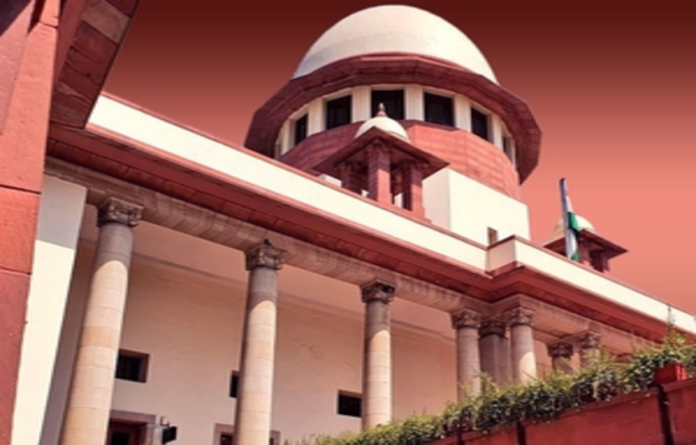The Supreme Court on Monday stayed criminal proceedings against Delhi Chief Minister Atishi and Aam Aadmi Party (AAP) leader Arvind Kejriwal in a defamation case filed by BJP leader Rajiv Babbar over their remarks against the alleged deletion of Delhi voters’ names from electoral rolls in 2018.
The Bench of Justice Hrishikesh Roy and Justice SVN Bhatti issued notice on a petition filed by the AAP leaders seeking quashing of the defamation case.
Both Kejriwal and Atishi challenged a Delhi High Court order that dismissed their plea against summoning as accused in the complaint.
Earlier in 2020, proceedings in the case were stayed by the High Court.
The single-judge Bench of Justice Anoop Kumar Mendiratta vacated the stay and directed the parties to appear before the trial court on October 3.
Appearing for Kejriwal, Senior Advocate Abhishek Manu Singhvi contended that the law on criminal defamation required a specific finding of locus and person aggrieved.
However, in the present case, the defamation complaint has been filed by respondent No.2-Rajiv Babbar as an authorised representative of BJP Delhi Pradesh, which was not a determinate class of an ‘aggrieved person’. He further contended that there was no ‘specific legal injury’ alleged in the plea filed by Babbar.
Nothing was said qua respondent No.2 in the impugned statements and insofar as petitioner No.2-Atishi, there was no specific allegation in the complaint, besides a newspaper report, which shall be treated as hearsay unless supported by proof, noted Singhvi.
The Senior Counsel further submitted that the Delhi High Court relied inter-alia on the judgment in the case of Shashi Tharoor vs State of NCT of Delhi, however the same verdict was recently stayed by the Apex Court.
Calling Babbar a “professional filer”, Singhvi submitted that the defamation complaint against Tharoor was also filed by Babbar. The issue as to whether a political party could constitute a determinate class was yet to be decided by the top court of the country, albeit there were different High Court opinions on the point, he added.
Singhvi further argued that unless an injury or harm to the reputation and ‘being aggrieved’ was demonstrable, the summoning of an accused for criminal defamation may not be warranted.
He further contended that the impugned statements were made in the run-up to Parliamentary elections and the same ought to be seen as part of political discourse.
Representing Babbar, Senior Advocate Sonia Mathur asserted that the defamation complaint was filed on the authorisation of BJP, as an “aggrieved” party in the case, not Babbar in his personal capacity.
Taking objection to Singhvi’s reference to Babbar being a ‘professional filer,’ the Senior Counsel submitted that in Shashi Tharoor’s case, Babbar approached the court in his personal capacity.
However, in the present case, it was the political party which was aggrieved and Babbar was duly authorised to litigate on its behalf.
Referring to a Kerala High Court judgment, the Senior Counsel argued that RSS was held to be a determinate class in this case. The special leave petition challenging the said verdict of the High Court was dismissed.
The Bench observed that in case the the defamation complaint was filed on behalf of the political party (BJP), it should have been titled “BJP through its authorised representative Rajiv Babbar), but that was not the case.
If a cause title mentioned the District Collector of a State, it did not mean the DC represented the state.
The Bench observed that there was a need to decide on the extent of defamation and the ‘lakshman rekha’ in this case.
The Apex Court recorded in its order that the issue as to whether respondent No.2 was an aggrieved person would require examination. The freedom of speech was a fundamental right in India guaranteed under Article 19(1)(a) of the Constitution.
The threshold limit to curl speeches in the course of political discourse has to be placed at a higher threshold. The threshold for criminal defamation has to be taken at a higher level for discourse amongst politicians and political parties, it noted.
Referring to the Khushboo case, the top court of the country said the threshold for placing reasonable restriction on freedom of speech and expression was a very high one and there should be presumption in the favour of the accused.
Babbar had filed the defamation complaint against Kejriwal, Atishi, Sushil Kumar Gupta and Manoj Kumar. He sought action against the AAP leaders for “harming” the reputation of BJP by blaming it for the deletion of the names of voters from electoral rolls.
The petition claimed that in December 2018, the AAP leaders, during a press conference, had alleged that on the directions of BJP, names of 30 lakh voters from Bania, Poorvanchali and the Muslim community had been deleted by the Election Commission of India.
The AAP leaders had submitted before the High Court that the trial court had failed to appreciate that no offence was made out against them.
The trial court orders failed to appreciate that the AAP leaders did not make or publish any statement against Babbar or his party, as alleged by him, the AAP leaders claimed in the High Court.


